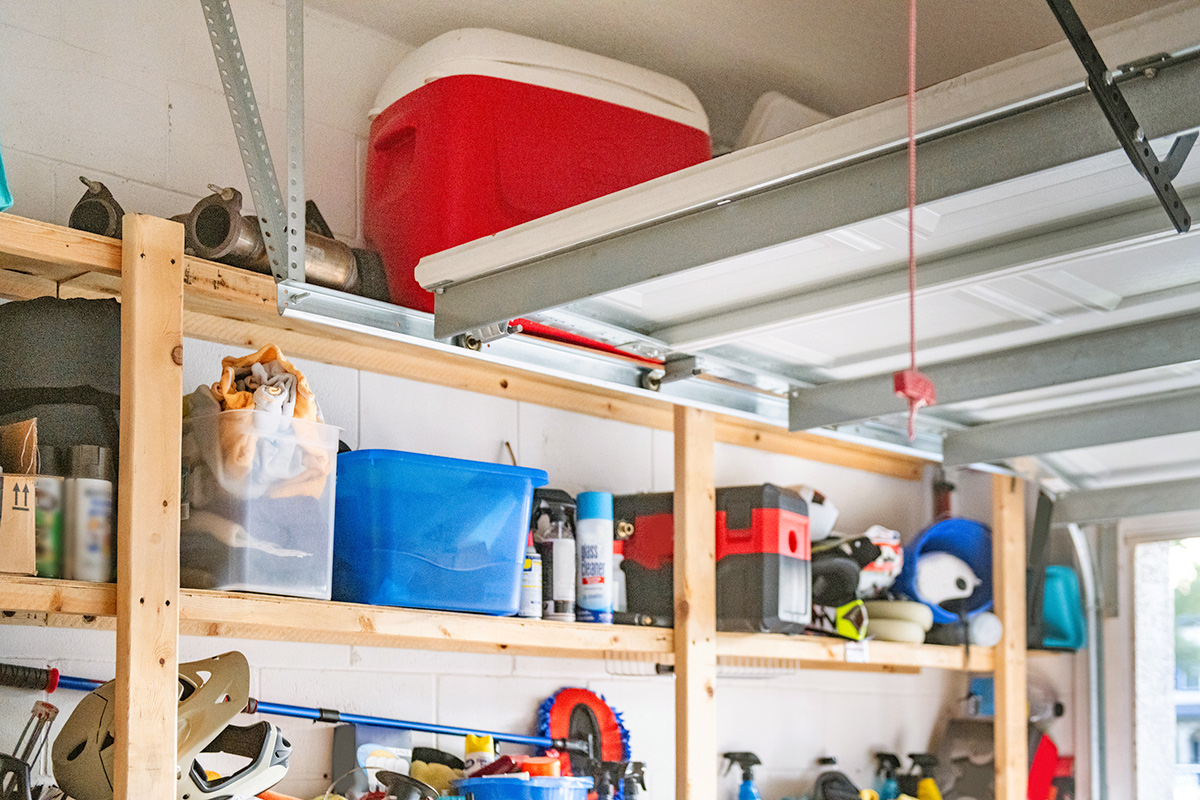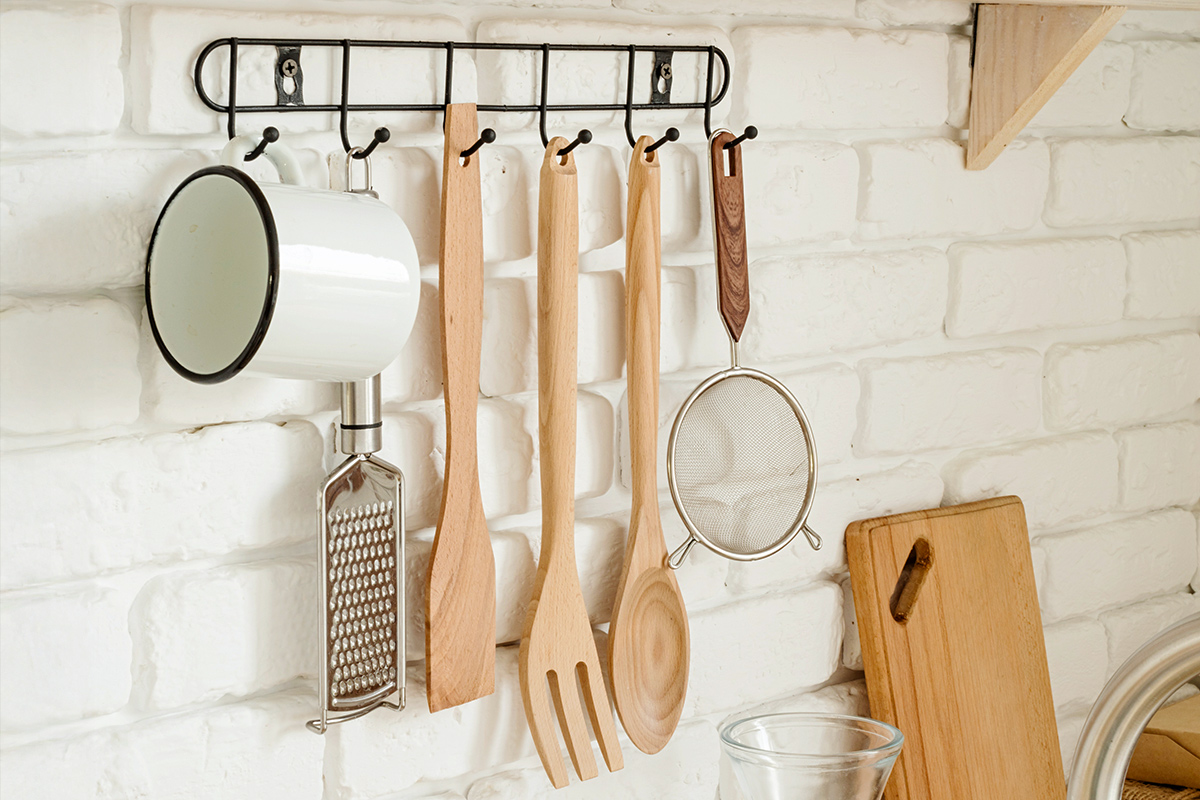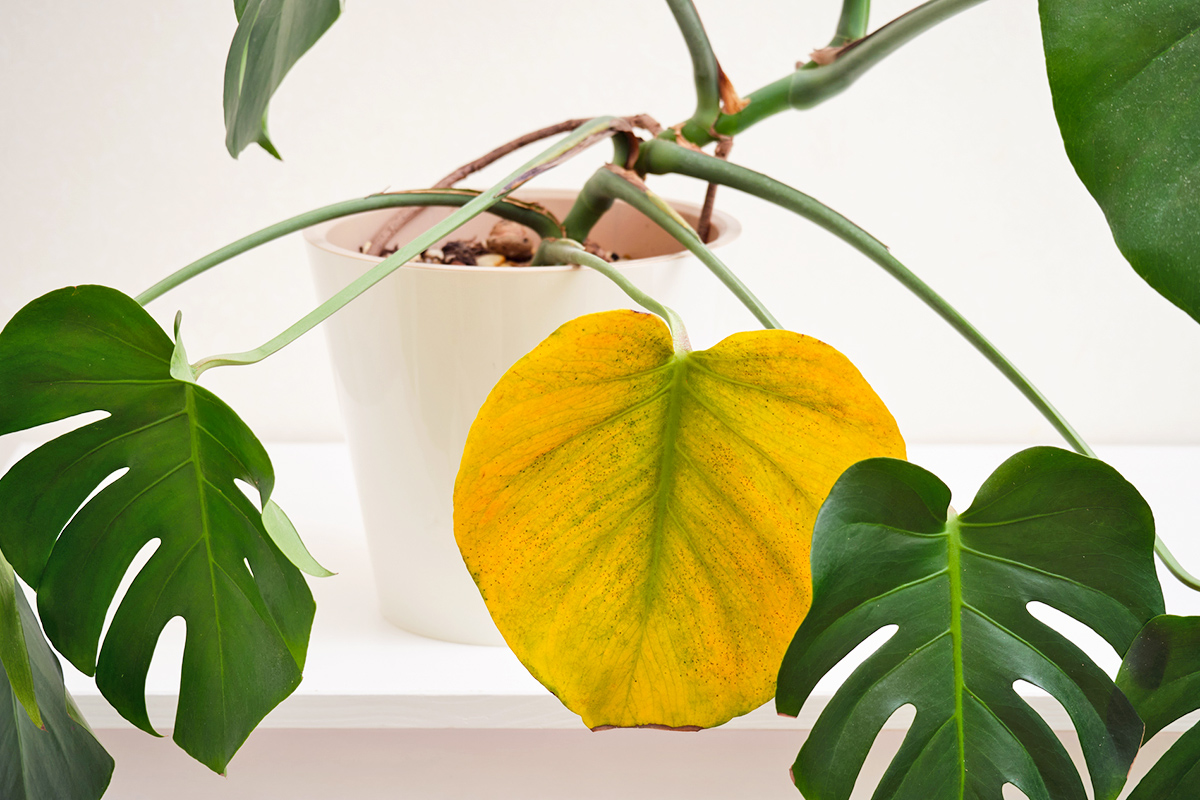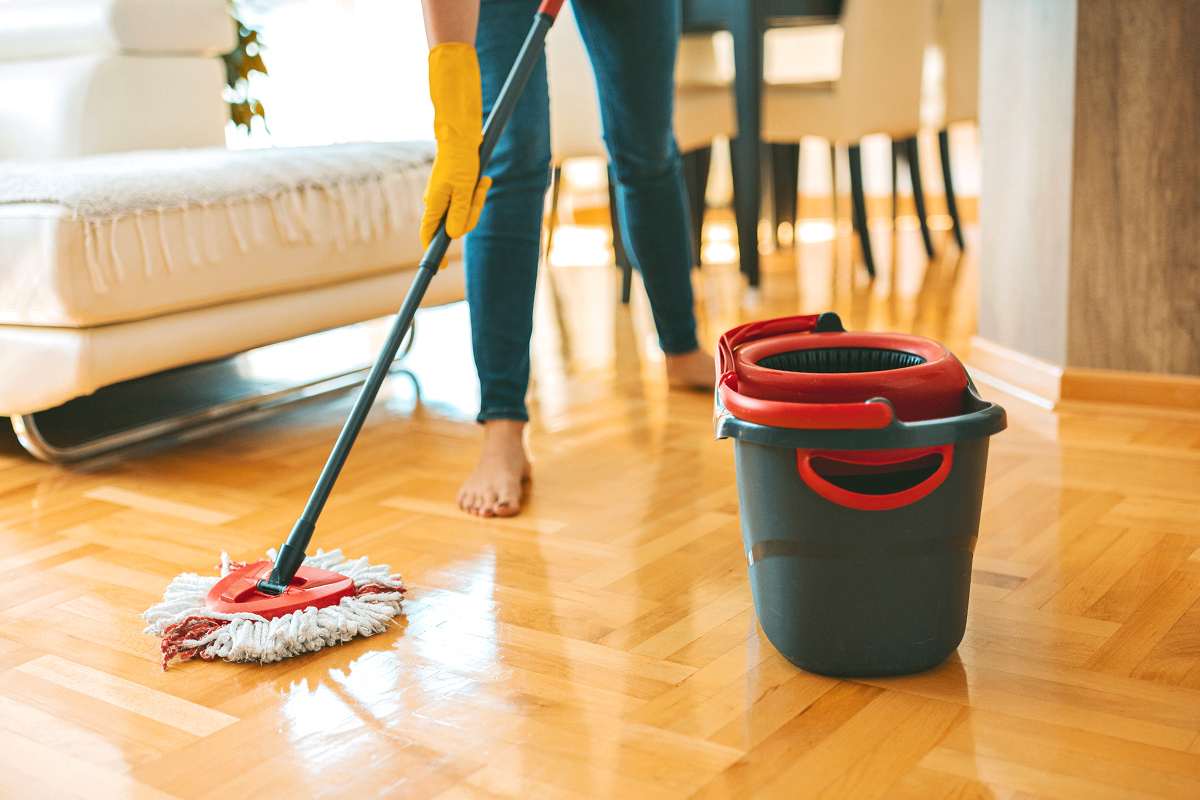A garage provides invaluable storage space, but it’s not a storage unit. If you find yourself holding your breath or putting up blinders every time the garage door opens, it might be time to declutter and establish good organization habits. This will ensure your extra space doesn’t become a wasteland for the items you no…
Not sure where to start? Here are 14 things that don’t belong in your garage.
Garage Decluttering Made Easy
1. Unused Holiday Decor
Storing holiday decor in your garage is perfectly fine. In fact, it’s often encouraged — where else are you going to stash that artificial Christmas tree? However, if you find that you’re only putting out half your decorations come the holiday season, it’s probably time to go through your collection and donate what you don’t use.
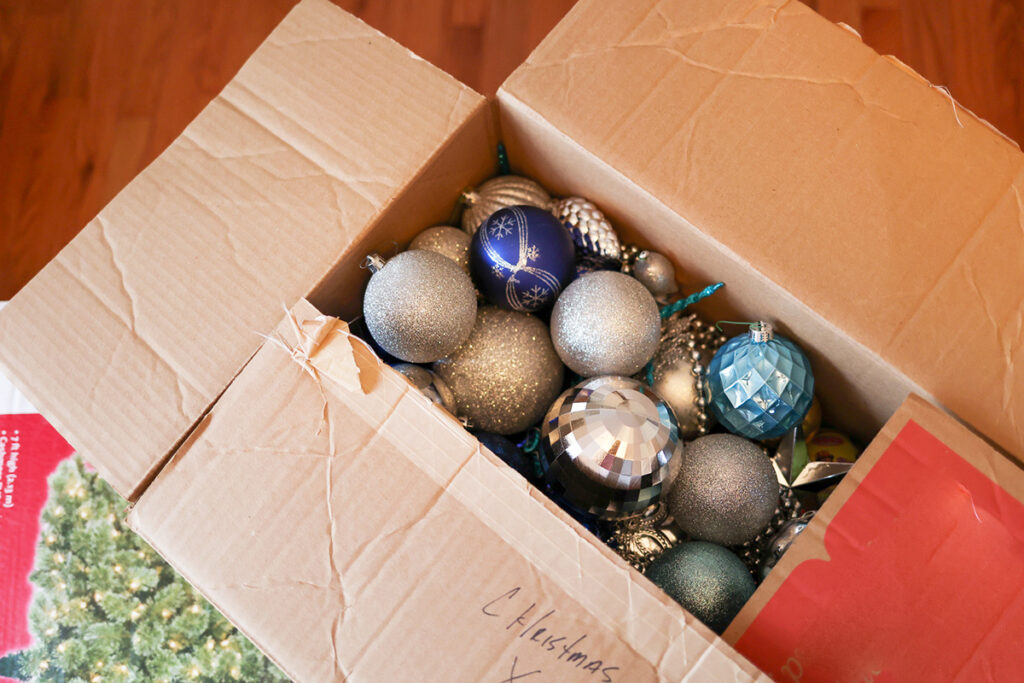
2. Extra Tools
Tools are a garage essential, but do you really need that many hammers? If your tool collection is unruly, give it a refresh by decluttering any duplicates you don’t need. While you’re at it, toss all those extra bits and bobs leftover from building flat-pack furniture (we’re totally guilty of hanging on to these, too).
3. Old Electronics
Old electronics don’t just sit around and collect dust; they also take up vital storage space in a garage. And, while they might be cool to look at, your garage isn’t a museum. First, check eBay to see if any of your vintage gadgets might be worth something. Then, with the rest, donate any devices that still function and/or schedule a recycling pickup for those that don’t.
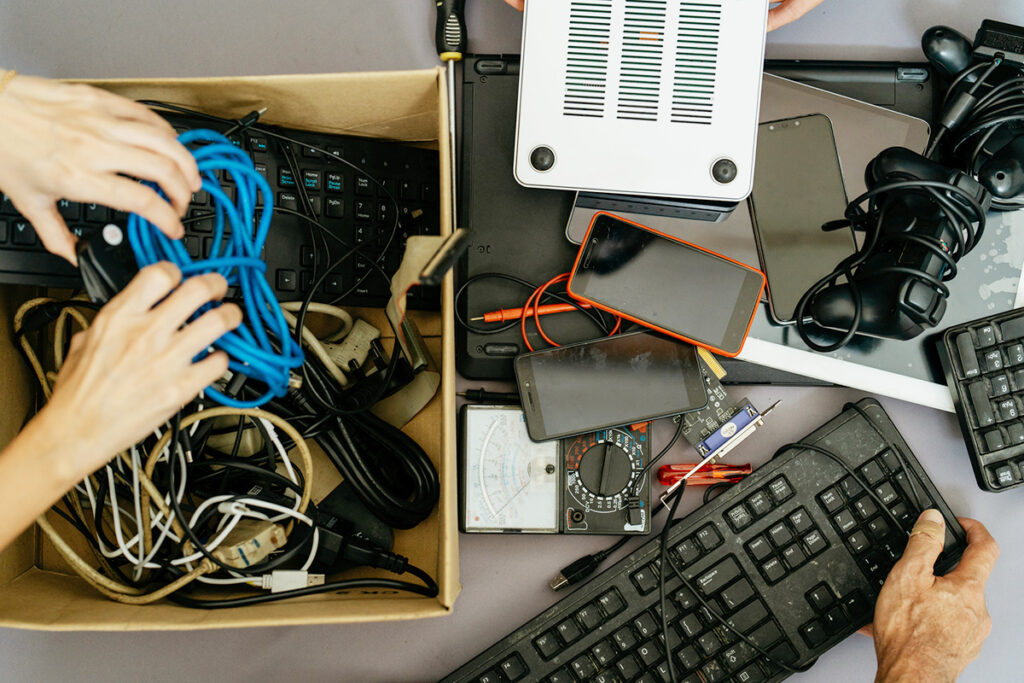
More from our network
House Outlook is part of Inbox Studio, which publishes content that uplifts, informs, and inspires.
4. Gear and Supplies From Past Hobbies
The garage often becomes a graveyard for hobbies past, from old sewing machines and notions to those roller blades you haven’t slipped into in years. It’s OK to say “been there, tried that” and move on.
5. Gardening Supplies
If you have an outdoor space, you’ve likely accumulated some gardening supplies over the years. Instead of stashing everything in your garage, take the time to reassess your setup. Consider adding a small storage shed or box on the side of your house for your gardening essentials. At the very least, go through those extra plant pots and bags of soil, donating or discarding what you no longer need.
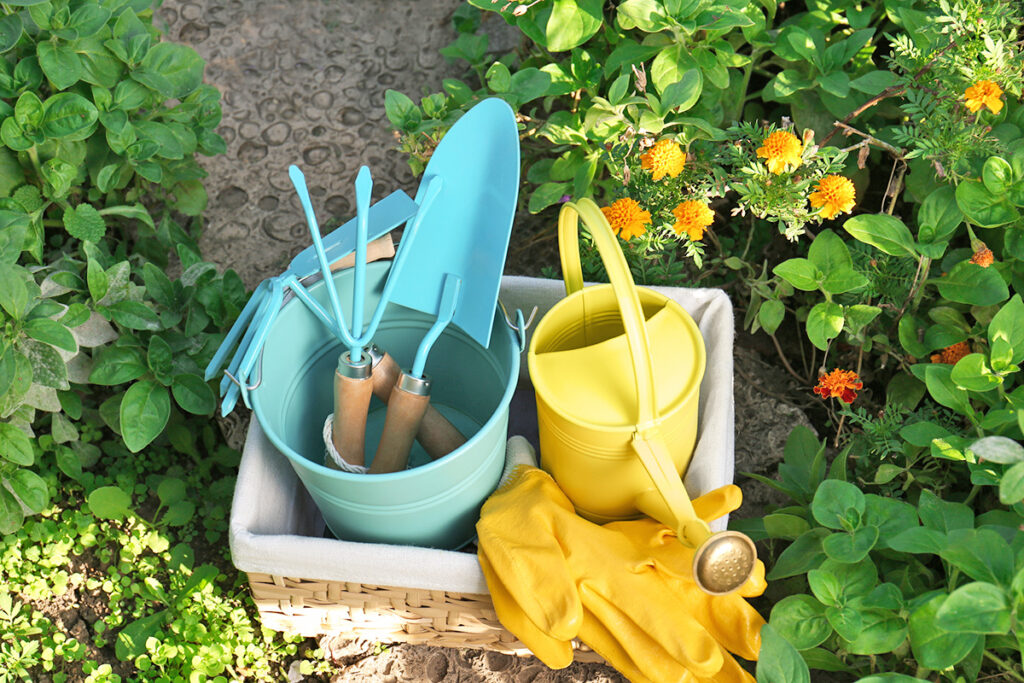
6. Old Sports Equipment
The garage is definitely the go-to spot for sports equipment. But if you have old gear you’ve replaced or simply no longer use, it’s time to donate the duplicates. Unless an item holds sentimental value (in which case, it might be cool to display it in your home), get rid of the extra gear — you likely won’t need it when you have a newer version sitting right next to it.


7. Photo Albums
Storing photo albums in a garage is risky, as prints can be damaged by moisture or extreme temperatures. Instead, bring those memories inside and stash them on a bookshelf. That way, you can easily access and flip through them whenever you’re feeling nostalgic.

8. Expired Paint
Keeping extra paint is handy for touch-ups around the house, but it often dries up after sitting on a garage shelf for several years. The quality can also be affected by temperature swings and humidity. If you have a lot of extra paint, go through it and toss anything that smells off or has a lumpy texture, significant separation, hardening, mold, discoloration, or rust flakes. Oh, and if you no longer have walls in that paint color, chuck it (properly, of course).
9. Untouched Exercise Equipment
Unless your garage has a designated workout area, exercise equipment tends to live out its final days there, unused. If you no longer break a sweat on that stationary bike or walking pad, someone else could put it to good use. List it on Facebook Marketplace or drop it off at a local donation center. If it no longer works, contact your city’s waste management department or recycling center to find out how to best dispose of it.
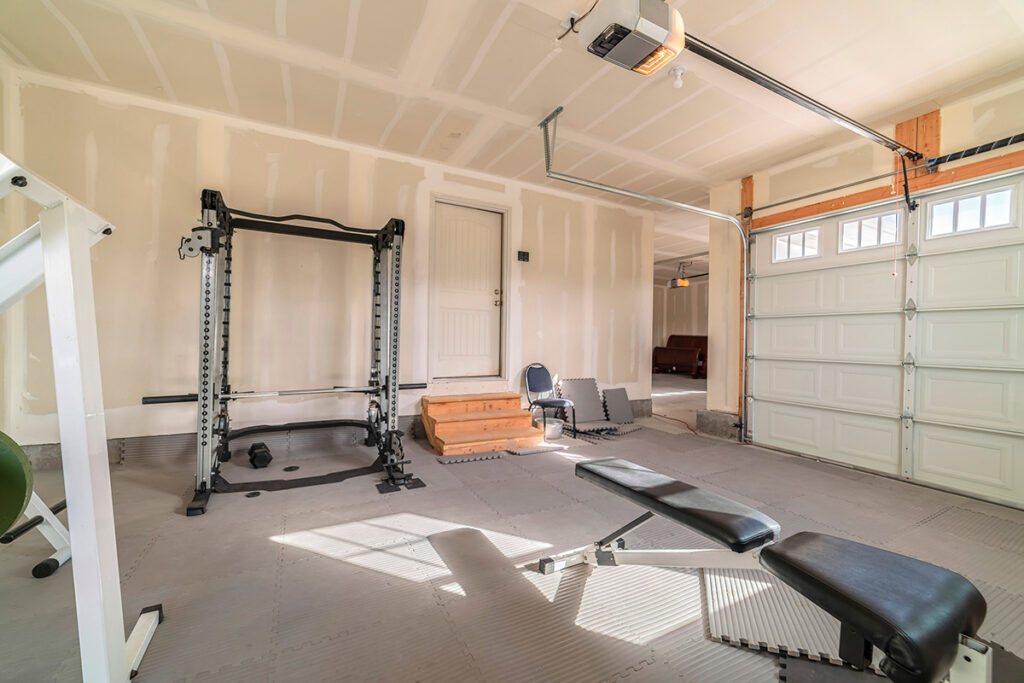
10. Important Documents
Important documents should never be stored in a garage, where they can easily fall victim to water damage, mold, pests, and extreme heat. Instead, get a filing cabinet or an expandable file folder and stash your paperwork inside the house. For irreplaceable documents and valuables, consider investing in a fireproof and waterproof document box.
11. Cardboard Boxes
Collecting cardboard boxes for moving is no easy feat, so it’s understandable to want to hold on to your corrugated treasure. However, paper products are prone to moisture damage, and cardboard boxes are a breeding ground for mold and mildew. Instead, list your boxes on Facebook Marketplace for others who could benefit from them.
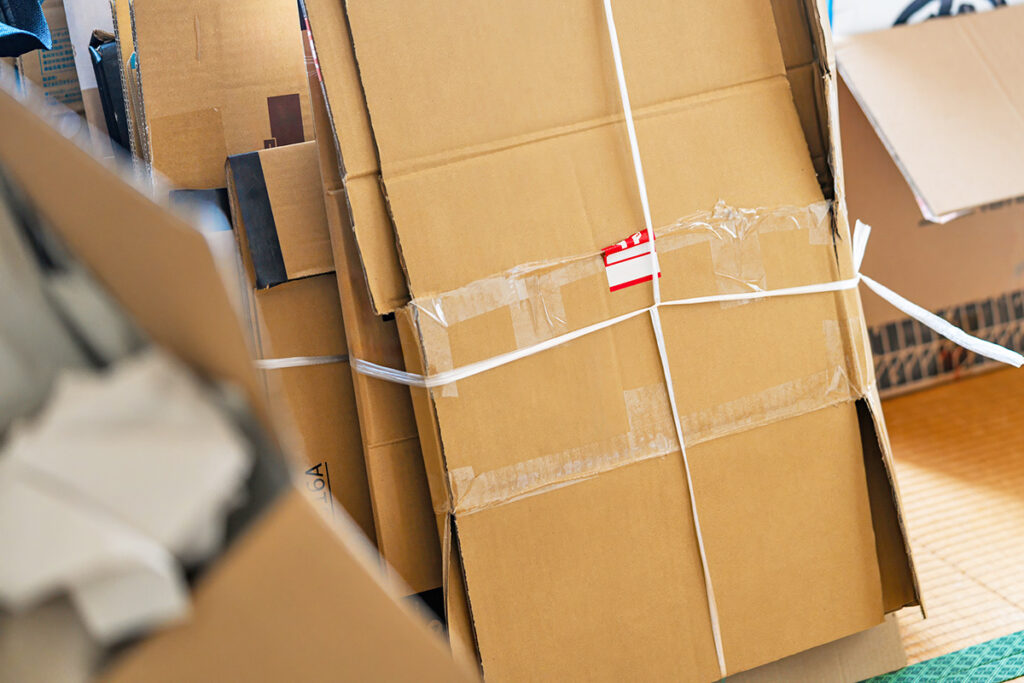
12. Unneeded or Expired Camping Gear
If you love the great outdoors, you have likely collected a lot of camping gear over the years. Make an effort to go through your storage bins and get rid of anything you don’t need anymore. Look for items with expiration dates, such as first aid kit supplies, sunscreen and bug spray, batteries, or stove fuels.
13. Dog Food
Unfortunately, dog food should not be stored in your garage. Temperature fluctuations, particularly in the winter and summer, can impact food quality and even cause it to spoil. If you can, find a spot in your hall closet or pantry for your dog’s food, or simply buy smaller bags.
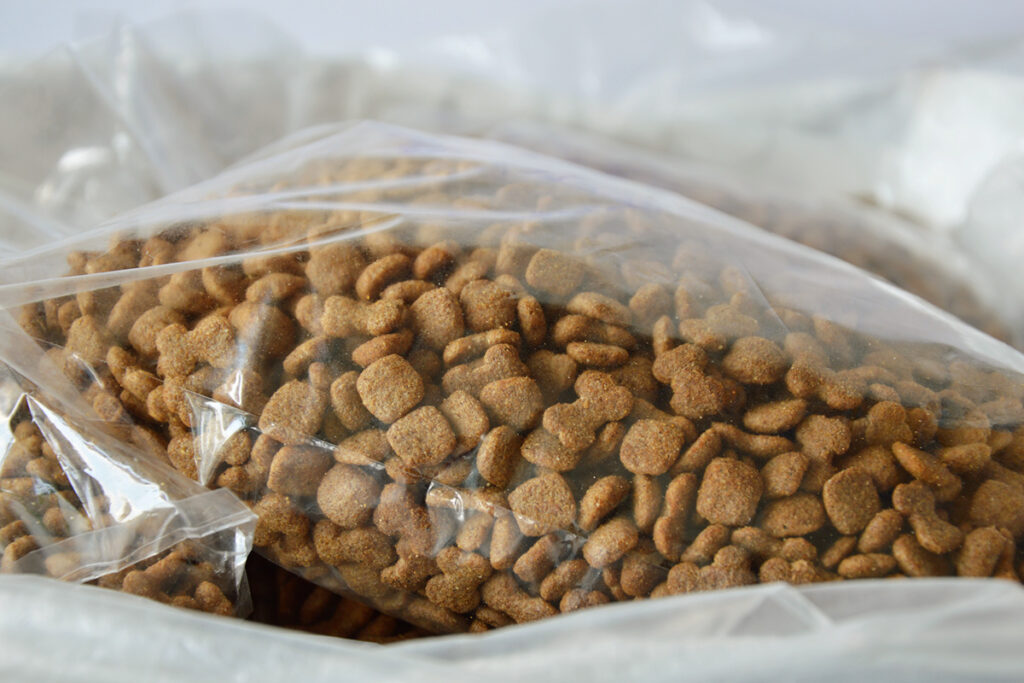
14. Forgotten Books
Much like paperwork and cardboard boxes, books are vulnerable to moisture damage and mold if kept in the garage. If you have a collection of books you don’t reference and prefer not to keep inside your home, donate them to a charity shop or even a library (but check donation guidelines before you lug them to your local branch).







